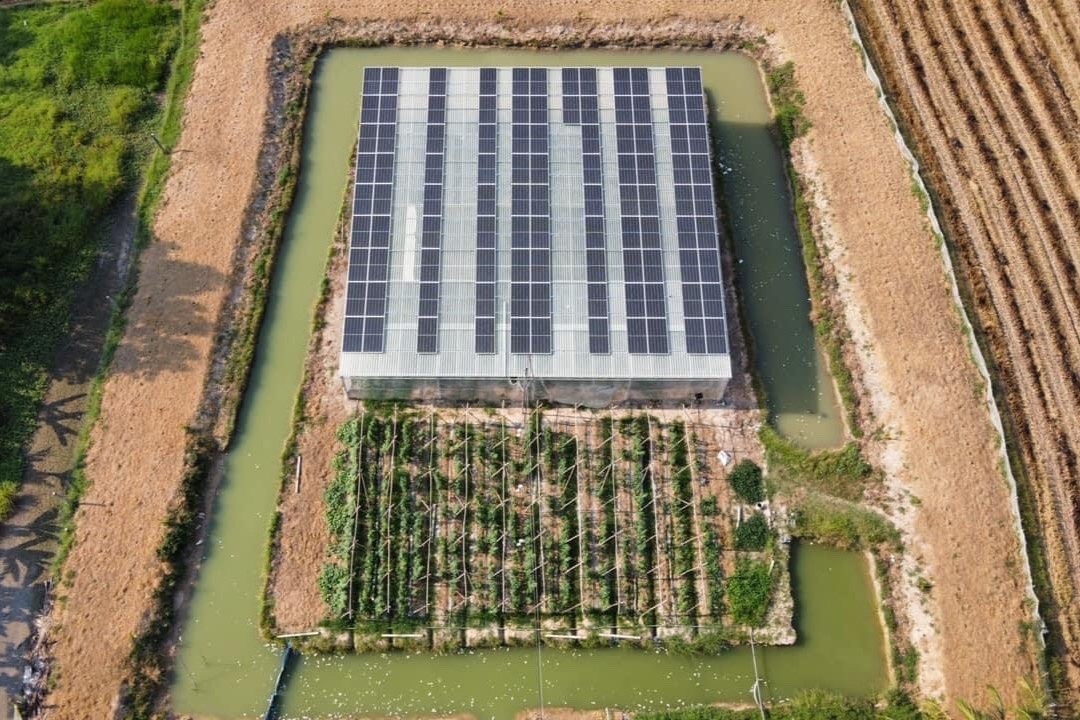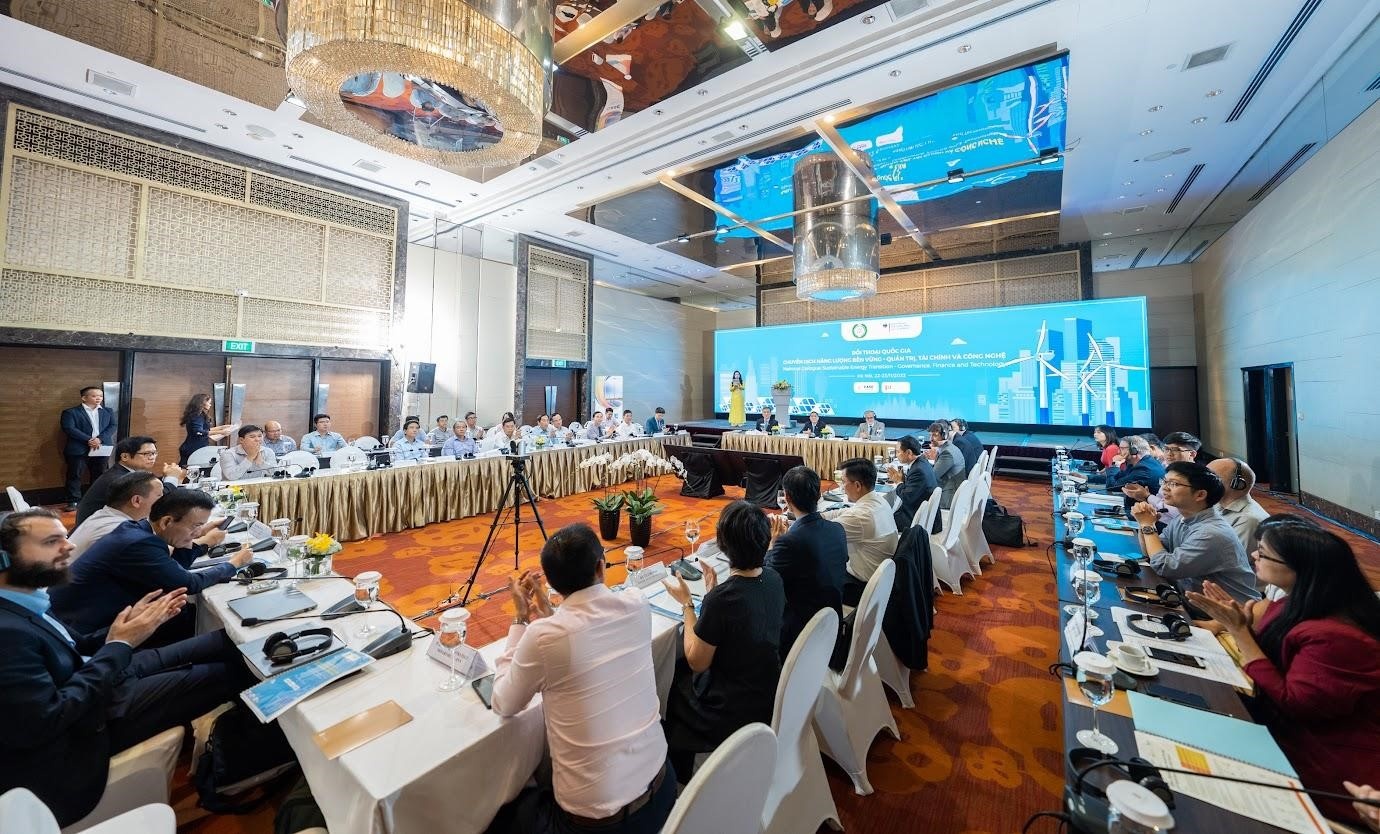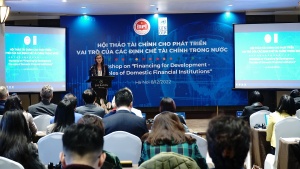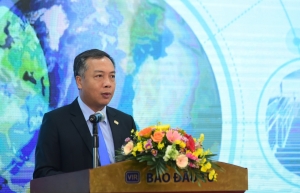Just energy transition: a green pathway for sustainable development
The country has set out specific greenhouse gas (GHG) emission reduction target, in which by 2030, the energy sector would emit no more than 457 million tonnes of CO2, equivalent to a 32.6 per cent reduction compared to the business-as-usual (BAU) scenario; the share of renewable energy sources accounts for at least 33 per cent of total electricity generation.
These figures by 2050 will be 101 million tonnes of CO2, equivalent to a 91.6 per cent reduction compared to BAU, and the share of renewable energy sources accounts for at least 55 per cent, according to a prime ministerial decision from July.
Efforts in the journey towards ‘net-zero’
Following the net-zero commitment announced by the prime minister at COP 26 in the UK in late 2021, Vietnam has quickly and actively taken various actions, in which the most notable is shaping climate protection strategies and creating relevant policies.
In addition to a roadmap to realise climate goals, a National Steering Committee to implement Vietnam's commitments has also been established. The PM also approved tasks and solutions to implement COP26 results, promulgating the National Action Plan on green growth for 2021-2030 and the National Strategy on Climate Change to 2050.
 |
| Combining aquaculture and photovoltaics |
Accompanying the government in its commitments, the National Assembly (NA) has been building a legal corridor to respond to climate change. In particular, it has decided to include energy in its thematic monitoring programme in 2023.
Challenges in various sectors
The national dialogue “Sustainable Energy Transition - Governance, Finance and Technology”, co-organised by the NA Standing Office of the Science, Technology and Environment Committee and the German Development Cooperation Agency, took place on November 22-23 in Hanoi.
The event was hosted within the scope of the “Clean, Affordable and Secure Energy for Southeast Asia” (CASE) project, sponsored by the German Federal Ministry for Economic Affairs and Climate Actions. This was the NA’s major meeting on energy transition, demonstrating the determination of high-ranking agencies of Vietnam.
 |
| The opening event of the national dialogue “Sustainable energy transition – Governance, Finance and Technology" |
At the event, Guido Hildner, German Ambassador to Vietnam, noted that to achieve the net-zero goal, besides key factors, including mechanisms, policies, and management solutions, Vietnam should remove many financial, technological, and technical barriers.
According to the Country Climate and Development Report for Vietnam published by the World Bank in 2022, to implement the net-zero emission and climate adaptation development roadmap, Vietnam will need about $368 billion in additional investment, equivalent to 6.8 per cent of the country’s GDP, by 2040. The decarbonisation roadmap also requires a total sum reaching $114 billion from 2022-2040.
| The German Federal Ministry for Economic Affairs and Climate Action has recently financed the CASE Project with many practical activities running from March 2020 to February 2024. |
At the seminar, a representative from the banking industry said that outstanding loans for green credit tended to increase year by year. However, the size of outstanding loans is still relatively small compared to the total credit.
The proportion of green credit outstanding loans rose from 1.55 per cent in 2015 to 3.69 per cent in 2020, mainly focusing on green agriculture (40 per cent); renewable and clean energy (30 per cent). The structure of medium and long-term outstanding loans accounts for 76 per cent of green credit outstanding balance.
Leveraging Germany's expertise, Ambassador Guido Hilder suggested Vietnam strive to perfect energy development institutions in the immediate future, focusing on studying, assessing the situation, and reviewing the legislative system related to the energy sector.
Cooperation opportunities
The German Federal Ministry for Economic Affairs and Climate Action has recently financed the CASE Project with many practical activities running from March 2020 to February 2024.
Lauding the role of GIZ and CASE project, the NA’s Science, Technology and Environment Committee noted that experiences in promoting energy transition in Germany and worldwide were very useful and that with united efforts of state management agencies, enterprises, and international cooperation, Vietnam's energy transition would open a ‘green pathway’ for sustainable development.
 | Vietnam needs to prepare financing for just energy transition The United Nations Development Program believes that increasing the capacity of domestic financial institutions to mobilise long-term capital is at the core of the climate transition in Vietnam. |
 | ESG key to sustainable development: conference On November 29, the “ESG - The Key to Sustainable Development” conference, organised by Vietnam Investment Review (VIR), saw the attendance of about 100 guests from state agencies, speakers, press and media agencies, and nearly 40 enterprises in Vietnam. |
 | Proposals to promote Vietnam's energy transition The energy elasticity coefficient in Vietnam for the 2016-2020 period averaged 1.67, a relatively high figure compared to some other countries that could prompt the need for more drastic remedy measures. |
What the stars mean:
★ Poor ★ ★ Promising ★★★ Good ★★★★ Very good ★★★★★ Exceptional
Related Contents
Latest News
More News
- $100 million initiative launched to protect forests and boost rural incomes (January 30, 2026 | 15:18)
- Trung Nam-Sideros River consortium wins bid for LNG venture (January 30, 2026 | 11:16)
- Vietnam moves towards market-based fuel management with E10 rollout (January 30, 2026 | 11:10)
- Envision Energy, REE Group partner on 128MW wind projects (January 30, 2026 | 10:58)
- Vingroup consults on carbon credits for electric vehicle charging network (January 28, 2026 | 11:04)
- Bac Ai Pumped Storage Hydropower Plant to enter peak construction phase (January 27, 2026 | 08:00)
- ASEAN could scale up sustainable aviation fuel by 2050 (January 24, 2026 | 10:19)
- 64,000 hectares of sea allocated for offshore wind surveys (January 22, 2026 | 20:23)
- EVN secures financing for Quang Trach II LNG power plant (January 17, 2026 | 15:55)
- PC1 teams up with DENZAI on regional wind projects (January 16, 2026 | 21:18)

 Tag:
Tag:

























 Mobile Version
Mobile Version